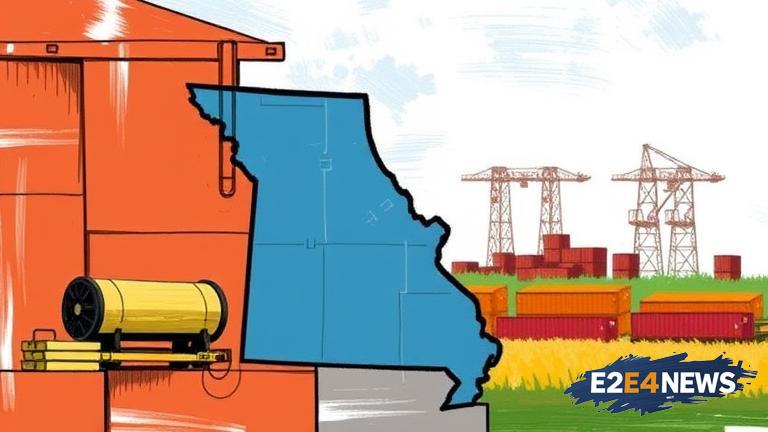A survey conducted by the Missouri Chamber of Commerce and Industry has found that tariffs are having a significant impact on the economy in Missouri and the Midwest. The survey, which polled businesses and industries across the region, revealed that the tariffs imposed by the US government are slowing down economic growth and causing uncertainty among businesses. According to the survey, 70% of respondents said that tariffs have had a negative impact on their business, with 40% saying that they have had to raise prices as a result. The survey also found that 60% of respondents have had to reduce their workforce or delay hiring due to the tariffs. The tariffs, which were imposed on goods such as steel and aluminum, have been in place since 2018 and have been the subject of much controversy. Many businesses and industries have argued that the tariffs are unfair and are causing more harm than good. The survey found that the tariffs are having a disproportionate impact on small businesses and rural communities, which are already struggling to compete with larger companies. The Missouri Chamber of Commerce and Industry has called on the US government to reconsider the tariffs and to work towards a more free-trade oriented policy. The organization argues that the tariffs are not only hurting businesses but also consumers, who are facing higher prices and reduced choice. The survey also found that 80% of respondents believe that the tariffs are not an effective way to protect American industries and that they are instead causing more problems than they are solving. The Midwest region, which includes states such as Missouri, Illinois, and Indiana, is particularly vulnerable to the effects of the tariffs due to its reliance on manufacturing and agriculture. The region is home to many major industries, including automotive, aerospace, and agriculture, which are all being impacted by the tariffs. The survey found that 90% of respondents in the Midwest region believe that the tariffs are having a negative impact on their business, with 50% saying that they have had to reduce their investment in the region as a result. The Missouri Chamber of Commerce and Industry has warned that if the tariffs are not lifted, the region could face significant economic damage, including job losses and business closures. The organization is calling on the US government to take immediate action to address the issue and to work towards a more balanced trade policy. The survey also found that 70% of respondents believe that the US government should prioritize free trade agreements and reduce tariffs on imported goods. The Missouri Chamber of Commerce and Industry has argued that a more free-trade oriented policy would benefit businesses and consumers alike, and would help to boost economic growth in the region. The organization has also called on the US government to provide more support to businesses and industries that are being impacted by the tariffs, including providing financial assistance and trade counseling. The survey found that 60% of respondents believe that the US government is not doing enough to support businesses and industries that are being impacted by the tariffs. The Missouri Chamber of Commerce and Industry has warned that the tariffs could have long-term consequences for the region, including a decline in economic competitiveness and a loss of business investment. The organization is urging the US government to take a more nuanced approach to trade policy, one that balances the need to protect American industries with the need to promote free trade and economic growth. The survey found that 80% of respondents believe that the US government should take a more balanced approach to trade policy, one that prioritizes free trade agreements and reduces tariffs on imported goods. The Missouri Chamber of Commerce and Industry has argued that such an approach would benefit businesses and consumers alike, and would help to boost economic growth in the region. The organization is calling on the US government to work towards a more free-trade oriented policy, one that promotes economic growth and competitiveness in the region.





